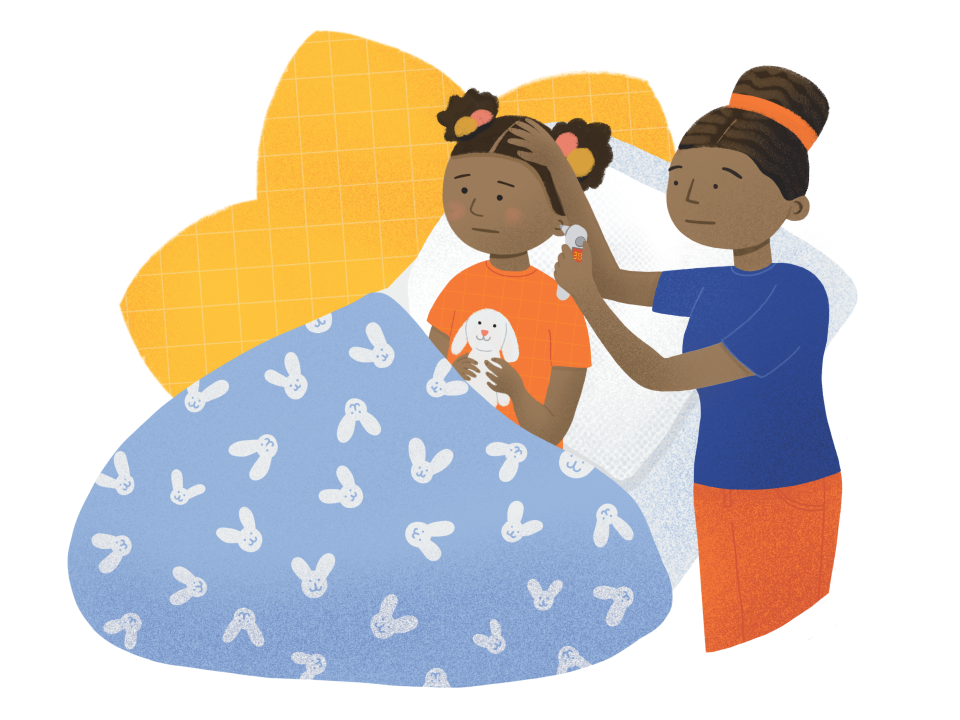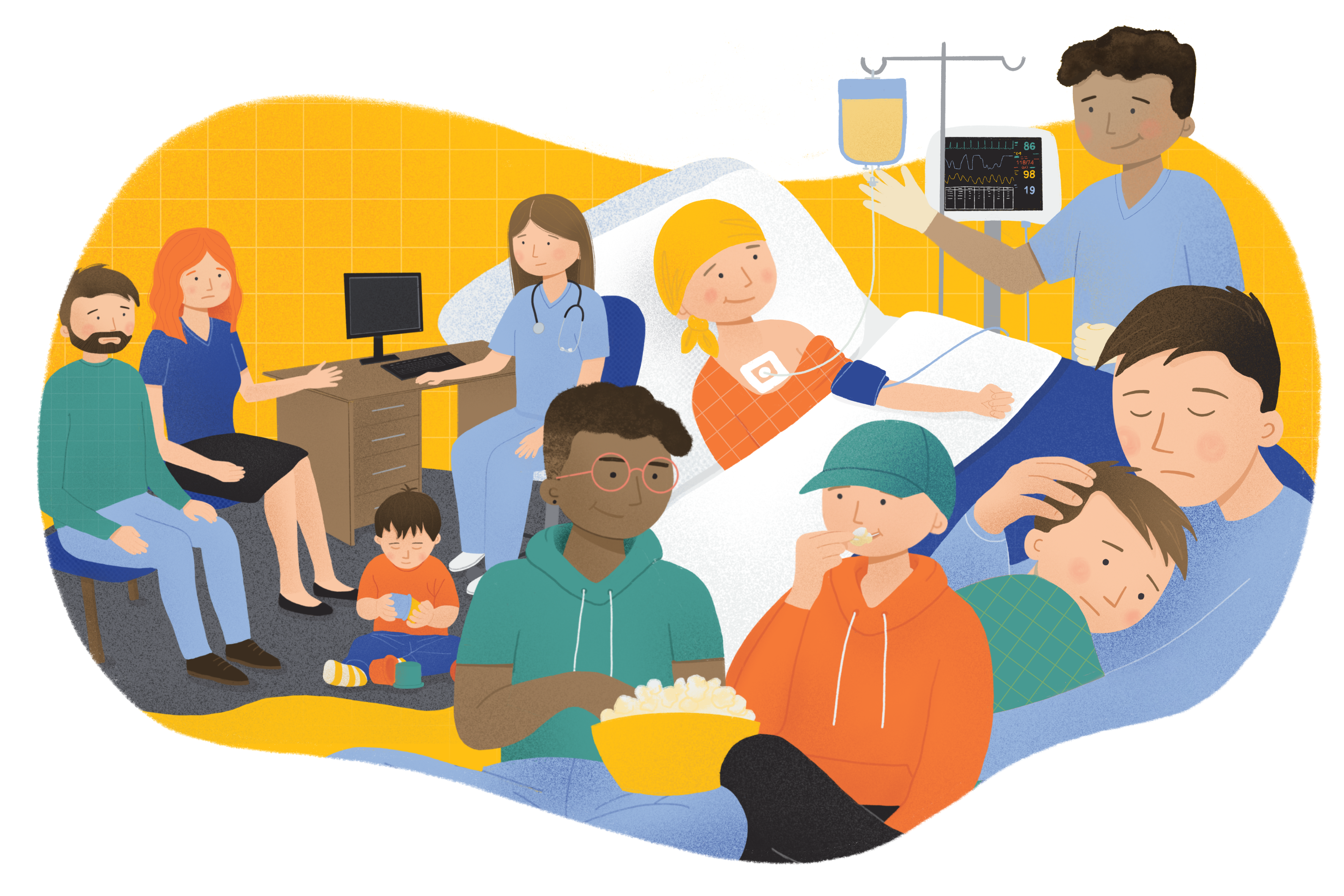Risk of infection in children

Your child is likely to be more vulnerable to infections. Even minor infections, such as a cold or sore throat, could make them ill.
What causes it?
- Cancer treatments such as chemotherapy can lower the number of neutrophil white blood cells. These cells are very important for fighting infection. If the number of neutrophils is reduced, it can affect your child’s ability to fight infection
- Cancer that affects the blood or bone marrow, which produces white blood cells
- Cancer treatments like chemotherapy or other cancer drugs
What are the symptoms?
- A sore throat or cough
- Stinging or burning when they pee
- Redness or swelling at the site of their central line
- A temperature above around 38°C (100.4°F) or below 35°C (95°F)
- Feeling shivery or unwell, even if their temperature is normal
You will probably be advised not to give your child any medicines containing paracetamol or ibuprofen while they are at risk of infection. These drugs may hide a rise in their body temperature, which is an important early sign of infection. Always follow your medical team’s advice.
What should I do if my child has symptoms?
Ask your nurse about how to check your child’s temperature and what to do if you they feel unwell or have a high temperature. They will give you a number to call and tell you when you need to contact them.
How is it treated?
If your child has high temperature or feels unwell, they will have a blood test to see if their white cells are low. They may need antibiotics or other medication in hospital to treat the infection.
- Antibiotics. If your child gets an infection and is neutropenic (low neutrophil count), they will have antibiotics into a vein to bring it under control quickly.
- Growth factors. Drugs called growth factors can help bone marrow to make more white blood cells quickly, to prevent infection. These are given by injection under the skin (subcutaneously). A common drug used to boost white cells is called G-CSF.
Contact the hospital
- If your child’s temperature is 38.5C
- If your child’s temperature is 38c-38.4c on two separate occasions in 24 hours
- If your child feels shivery or unwell
Tips and hints – avoiding infection
- Avoid large crowds and busy times if you’re taking your child out. This can be hard when trying to keep life as normal as possible, but it’s important not to isolate your child.
- Make sure your child and the people around them wash their hands regularly, especially before they eat and after going to the toilet.
- Tell the school of your concerns about infections such as chickenpox and measles. The principal will let other parents know of the risk to children receiving chemotherapy and the importance of letting the school know if their child is in contact with or develops them.
- Wash fruit and salad, don’t eat food that has been left out of the fridge more than 90 minutes or is past its use-by date.
For more information
Phone
1800 200 700



